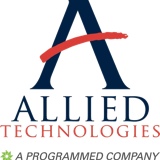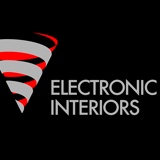Information
-
Audit Title
-
Document No.
-
Client / Site
-
Conducted on
-
Prepared by
-
Location
-
Personnel
Exterior
-
Photo taken from entrance of compound looking in.
-
Compound: must be clean and free of debris.
-
Fences & Gates: functional without damage or deficiencies.
-
Locks & Mechanisms: all locks and mechanisms present and functional.
-
Shelter or Enclosure: exterior of shelter or enclosure without damage or deficiencies.
-
Identification & Labelling: all exterior labelling and identification present. Engineering # on door (other identifications vary by province).
-
Tower and Shelter Lighting: exterior shelter and lighting functional.
-
Surrounding Environment: surrounding area should be free of potentially dangerous or damaging objects. Example: trees, branches, etc...
Grounding
-
Photo of poor grounding (if necessary).
-
Ground Cables: all exterior grounding cables must be solid, properly attached without damage and not missing.
-
Ground Resistance Meter: any suspect ground connections must be checked with Ground Resistance Meter.
Generator
-
Photo of generator.
-
Generator: enclosure should have no damage, no visual deficiencies and no alarms present on control panel.
-
Environmental: verify spill-kit and absorbent pail are on-site.
-
Enviroline: ensure 'Enviroline' stickers are attached to generators near fuel filler and on transfer switch in shelter.
Interior
-
Take picture looking into shelter from front door.
-
Shelter Clean: interior of shelter or enclosure must be free of unnecessary debris, garbage kept to a minimum, floor and environment clean.
-
Labelling: all interior labelling and identification present (AC breaker panel, site ID plaque, CATS placard, etc...).
-
Hardware Fixed: all items mounted or attached to walls or ceiling must be safe and solid (example: cable trays, electrical boxes, shelving, etc...).
-
Hardware Fixed: all items mounted or attached to walls or ceiling must be safe and solid (example: cable trays, electrical boxes, shelving, etc...).
-
Airtightness: interior must be airtight and waterproof. No holes should be present in floor, walls or antenna entry ports to prevent water or vermin migration.
-
Lighting: emergency lighting functional.
-
Landline: removed if not necessary, in working order if needed for health and safety issues.
-
HVAC: A/C and ventilation functional.
-
Environmental: environmental kit present if required.
-
Interior Accessories: table, chair, step ladder (rooftop sites), garbage can, broom, dustpan, floor mat and fire extinguisher (valid) all present if area permits.
RF Hardware
-
All frames must be solidly attached and properly grounded.
-
All RF hardware and equipment must be properly and safely installed and grounded.
-
All unused, obsolete and unnecessary equipment and cabling must be removed and returned within 90 days of decommissioning.
-
All electrical connections must be safe and solid.
-
All RF connections must be safe and properly torqued.
-
All cabling secured with tie wraps on frames and cable trays.
-
Power plants, BTS, MW radios, fuse panels, DSX, BIX panels, cabling and RF equipment must all be properly identified with names, directions, IP addresses, BTS #, etc...
Documentation & Site Information
-
Log books present at site.
-
Acceptance tests, work orders and antenna sweeps present on site (or on GIM).
-
NRM information precise and up-to-date.










